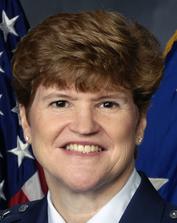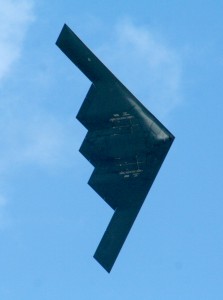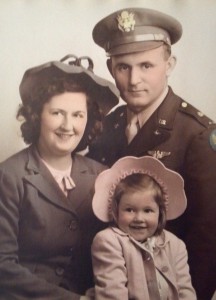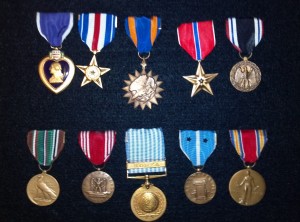I’ve been considering a new direction for Mondays on the blog, which will probably include making My Town a once- or twice-a-month feature, rather than every week. But an announcement I read last week was just too cool to pass up: this summer, the U.S. Air Force will see its first female four-star general – and she’s from the Dayton area!

General Janet C. Wolfenbarger
She’ll also serve here, at Wright-Patterson Air Force Base, where she’s already spent over half of her 32 years of service. Now a Lieutenant General, Janet C. Wolfenbarger works in acquisitions at the Pentagon, a suitable step before taking the lead at Air Force Materiel Command, which is headquartered at Wright-Patt. AFMC oversees acquisition and logistics, in addition to research and development, and support and sustainment programs for aircraft and weapons systems.
General Wolfenbarger has a long history with the Air Force. Not only has she spent over half her life in service, she was a military kid, with a father in the Air Force. Her husband also served many years as a pilot before retiring in 2006.
Born Janet Libby in Florida, her family moved several times before her dad was assigned to Wright-Patt just in time for her to spend her high school years at Beavercreek High School. While there, she and several classmates started a girls’ soccer team, which eventually evolved into the current, official school team and was the start of her decades of leadership. In 2004, she was inducted into the Beavercreek High School Alumni Hall of Fame.

General Wolfenbarger's past service at WPAFB included managing the B-2 program
When she graduated from Beavercreek in 1976, the Air Force Academy was just beginning to accept women, and Janet Libby graduated in the academy’s first class that included women. She then went on to earn several masters degrees, including one in aeronautics and astronautics from Massachusetts Institute of Technology. In 2009, she received her third star, and became the highest-ranking woman in the Air Force.
General Wolfenbarger’s story is certainly inspirational. She’s proof that with determination, confidence, and simply doing one’s best in a job, one can go far. She hopes more young women will consider the Air Force as a career, one she calls “extraordinarily rewarding and challenging.” And with her new assignment, she’s glad to return to Dayton, and said, “I feel as though I am coming home.”
Congratulations to General Wolfenbarger, and best wishes for continued success in her new assignment!
You can read more about General Wolfenbarger in the Dayton Daily News, as well as on the official U.S. Air Force website.
I’d love to hear from you! Have you heard or read any inspiring girls-rule stories lately? What do you think of General Wolfenbarger’s story?




 Colonel Wilcox’s accomplishments were many. The medals shown here recognize some of the missions and campaigns he served in during both wars. The
Colonel Wilcox’s accomplishments were many. The medals shown here recognize some of the missions and campaigns he served in during both wars. The